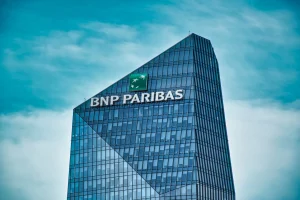Last month, the European Parliament once again strengthened its fight against financial crime and money laundering across the 28 member states with the introduction of the 5th Money Laundering Directive (5MLD). The directive, which feeds into the European Parliament’s wider plan to combat money laundering and terrorist financing across the continent, could directly impact law firms and comes amongst a flurry of activity that aims to increase transparency amongst companies and business owners.
One of the key focuses within 5MLD is the provision of open access to beneficial owners registers, an initiative designed to identify the true beneficiaries of companies and commerical property across the EU. By listing the ultimate company and property owners on an open national register, information between member states will be more readily available, helping law enforcement to identify potential illicit activity across the continent. It must be noted that some member states, including France and Germany, have already passed legislation as part of their compliance with 4MLD which means that the public will have restricted access to such registers.
The UK was already ahead of the curve in this respect with the introduction of the ‘Person with Significant Control’ initiative from Companies House in 2016, whereby organisations have to identify their PSC – another term for ‘beneficial owner’ – and record their details on a register. This approach is being taken one step further with UK Government announcing the introduction of the Foreign Owners’ Property Register, which aims to increase transparency in the UK property market and allow the authorities to identify properties owned by high risk entities, who may be using property purchases to launder money.
Given the UK’s exit from the European Union, it remains to be seen how much of 5MLD will be implemented into UK law, as the Sanctions and Anti-Money Laundering Act has just received Royal Assent to be introduced following the Brexit transition. Irrespective of the introduction of beneficial owner registers, UK organisations are already under obligation to identify the ultimate beneficial owner in a business transaction – the provisions in 5MLD are simply designed to make this easier in practice.
Shining the spotlight on the legal sector
The recent Panama Papers and Paradise Papers highlighted how critical transparency is – they revealed how companies and individuals hide behind complex tax and business structures both at home and in secrecy jurisdictions; information which only came to light because their respective law firms suffered a data breach. Provisions in 5MLD will potentially help to improve visibility and create greater transparency, however in reality, it may be more complex than that.
Even with greater transparency financial criminals can create very complex corporate structures which are hard to unravel, they use tools such as appointing associates, nominee shareholders and bearer shares and it takes a high level of skill to identify the real beneficial owners.
Requests for such complex corporate structures should be an automatic ‘red-flag’ for legal firms, indicating a higher risk scenario. In such circumstances it is critical that lawyers conduct enhanced due diligence against their clients. It is their responsibility to identify who the ultimate beneficial owner of a business is, and if the organisation is linked to entities which are classed as ‘higher risk’, such as politically exposed persons (PEPs). Not only does this have to take place at the client onboarding stage, lawyers must undertake the appropriate level of due diligence on an ongoing basis to ensure that their client information is up to date, and any emerging risks are identified.
For compliance to be a success, it needs to be a firm-wide responsibility and not just sit with the firm’s Money Laundering Reporting Officer (MLRO) or Money Laundering Compliance Officer (MLCO). Whilst the MLRO and MLCO are there to guide and support law firms on their path to compliance, it is the individual lawyers who may have to face the repurcussions from the SRA; the buck does not always stop with the firm itself.
Legal backing
Another area in which lawyers will be able to make a discernible difference is in the property market. It is evident that dirty money is making it into the sector, with the UK Government estimating that over £180 million of UK property has already been placed under criminal investigation as the suspected proceeds of corruption, with over three quarters of that related to money laundering via a secrecy jurisdiction.
That is just the tip of the iceberg, however, with recent figures stating that £4.4 billion of UK property may have been bought with suspicious wealth. With billions of pounds potentially still being laundered through the country’s property sector, it is vital that the lawyers acting as the gatekeeper to these transactions are conducting the appropriate levels of due diligence to identify the ultimate beneficial owners and flag any suspicious activity.
Whilst it is not yet clear how many of 5MLD’s changes will come into force in the UK, there is a strong likelihood that a majority of the measures within the directive will take shape in UK law in one form or another.
There is already a heightened regulatory appetite to ensure that money laundering requirements have been fully implemented by the legal sector, in line with the 2017 Money Laundering regulations; for example the SRA has conducted investigations into six law firms for not complying with money laundering regulations in the last year. As such lawyers must ensure that 5MLD and any other upcoming regulation is taken just as, if not more seriously, than previous legislation.
Michael Harris
Director
Financial Crime Compliance at LexisNexis® Risk Solutions
LexisNexis® Risk Solutions provides customers with solutions and decision tools that combine public and industry specific content with advanced technology and analytics to assist them in evaluating and predicting risk and enhancing operational efficiency. Our innovative solutions enable organisations to manage risks like identity theft, fraud, money laundering and terrorism, and prevent financial crimes, and insurance and government benefit scams.




















